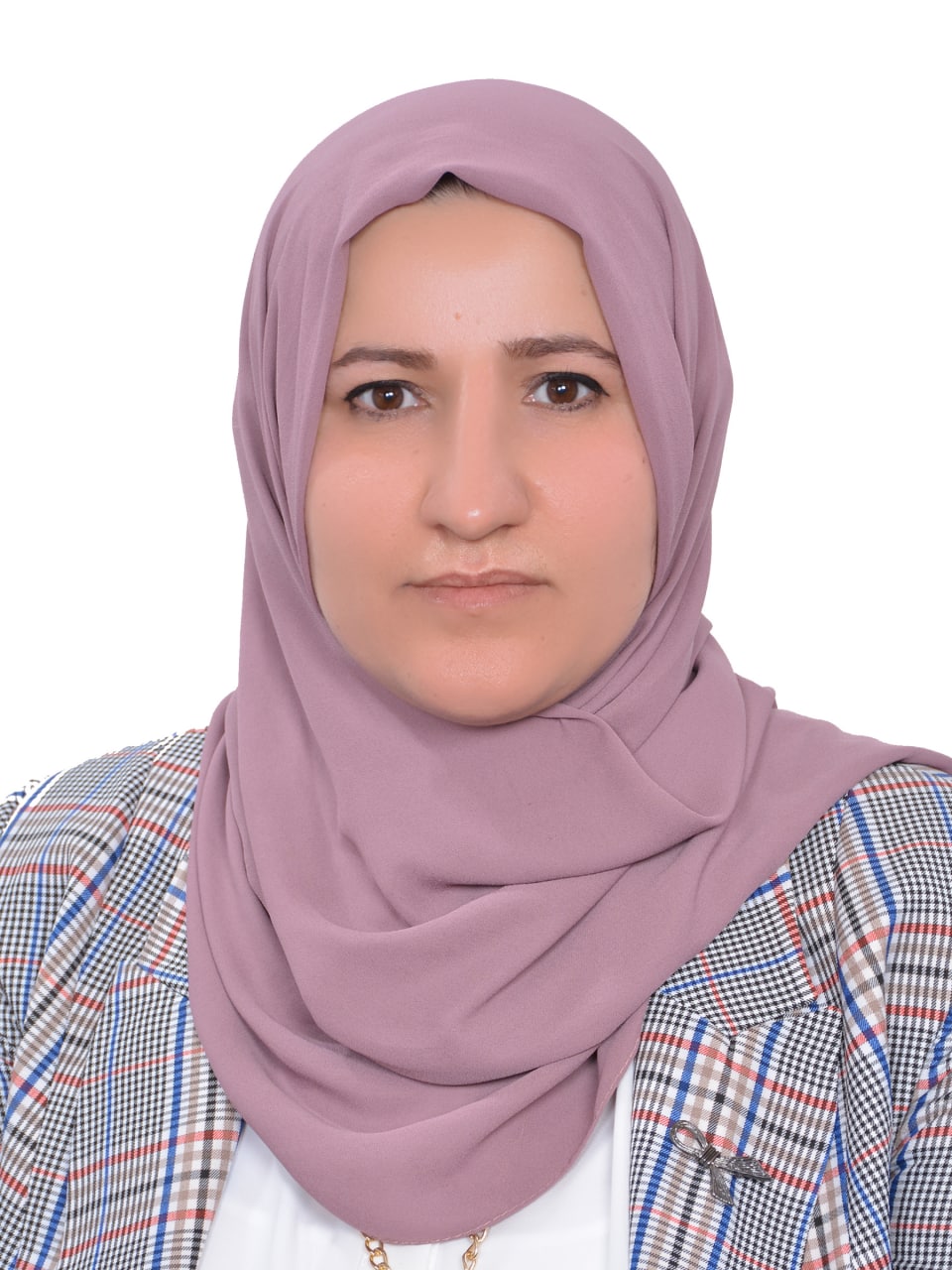
Fatima fadhil salih
Research Interestshealth education
women health
substance abuse prevention
| Gender | FEMALE |
|---|---|
| Place of Work | Kirkuk Technical Medical Institute |
| Department | Community Health |
| Position | lecturer |
| Qualification | Master |
| Speciality | Community Health Nursing |
| fatimateacher696@ntu.edu.iq | |
| Phone | 9647701222858 |
| Address | Iskan, kirkuk, Kirkuk, Iraq |
atima Fadhil Salih, a lecturer at the Community Health Technologies Department, Technical Medical Institute / Kirkuk. She holds a Master’s degree in Community Health Nursing from the University of Baghdad (2020) and has over 24 years of teaching experience. Her research focuses on community health promotion and preventive health education.
Academic Qualification
Master’s Degree in Community Health Nursing
Sep 15, 2018 - Dec 3, 2020Specialisation in Community Health Nursing Community Health Nursing from the College of Nursing, University of Baghdad
Bachelors
Sep 15, 2012 - Jul 12, 2016Bachelor’s degree in Nursing from the College of Nursing, University of Kirkuk
Publications
Awareness of Kirkuk Technical Institute Female Students Regarding Polycystic Ovarian Syndrome (PCOS)
Apr 3, 2023Journal CENTRAL ASIAN JOURNAL OF MEDICAL AND NATURAL SCIENCES
publisher CENTRAL ASIA STUDIES
DOI 2660_4159
Issue 2
Volume 4
Awareness of Kirkuk Technical Institute Female Students Regarding Polycystic Ovarian Syndrome (PCOS)
Effectiveness of an educational program on knowledge of high school students about substance abuse in Kirkuk City
Jun 27, 2021Journal Iraqi National Journal of Nursing Specialties
publisher College of Nursing, University of Baghdad
DOI https://doi.org/10.58897/injns.v34i1.465
Issue 13
Volume 34
Objective(s): This study aims to determine the effectiveness of an educational program on high school students' knowledge about substance abuse and its health consequences, and to find out the association between students’ knowledge about substance abuse and its health consequences and their demographic data of age, socioeconomic status, and educational level of parents. Methodology: A quasi-experimental study is conducted from October 28th, 2019, to March 30th, 2020. The study sample included a nonprobability “purposive” sample of (124) male students (62) students for the control group and (62) students for the study group, aged (14-19) years, who were selected from Al-Hikma High School for Boys in Kirkuk City, Iraq. A self-report questionnaire is used for data collection, which includes three parts: the first part deals with the students' demographic information, the second part includes students' knowledge about substances and the third part is about students' knowledge of the health effects of substance abuse. Results: The study results reveal that there is a significant difference in students' knowledge about substance abuse and its health consequences between the post-test knowledge score of the study group. There is no significant relationship between students'' knowledge and their demographic variables of age, parents’ education, and socio-economic status. Recommendations: The study recommends that providing of an educational program about substance abuse and their consequences as part of the curriculum in high schools is essential and encouraging collaboration between the Ministry of Health and Environment and the Ministry of Education to prevent substance abuse among students. Keywords: Educational Program, Knowledge, Substance Abuse





